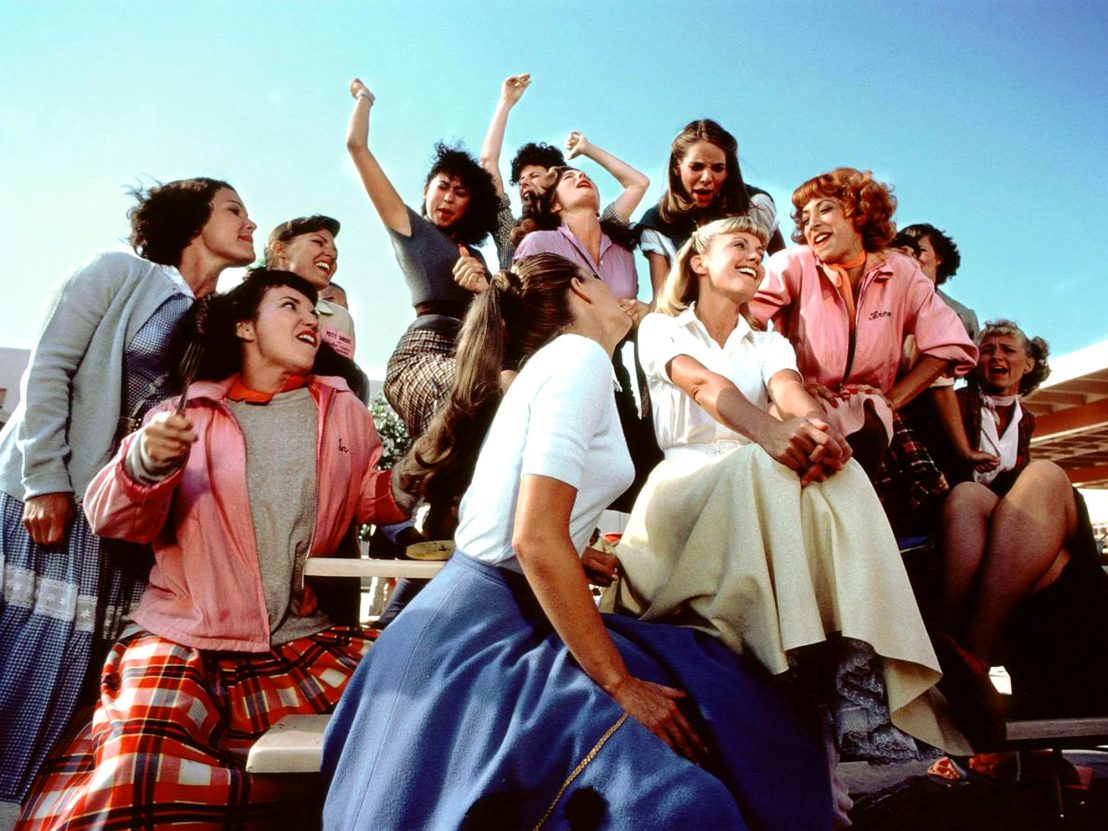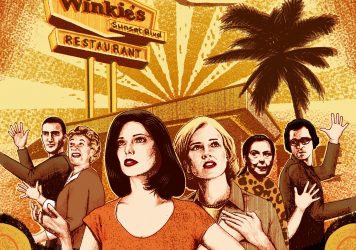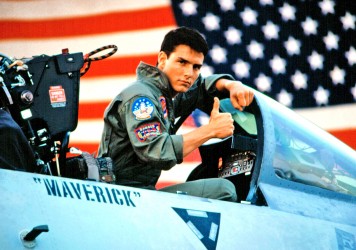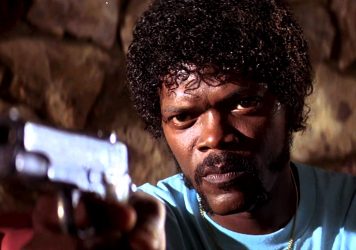
We all have our blind spots when it comes to cinema – and that’s a good thing. Being passionate about film is being open to discovery and constantly looking to fill in gaps in one’s knowledge. But when you get to a certain age and also happen to work in film journalism, not having seen certain pop culture touchstones starts to stick out. Until very recently, my biggest blind spot – at least in terms of a film it seemed everyone had seen at least once – was Grease.
And yet, through cultural osmosis, I’ve always felt like I have seen Grease. Not only did I know most of the songs, I knew most of the words to most of the songs. What I didn’t know was what a peculiar musical it is. Take the title track, for instance, which plays over the opening credits and is one of the few songs I hadn’t heard before. One of four original songs written for the film (this one by Barry Gibb), the disco number feels surprisingly at odds with the late-’50s/early ‘60s style of the rest of the soundtrack. It’s a catchy tune, but seems as though it’s been included merely to forge a connection between the film and star John Travolta’s earlier Bee Gees-scored hit, Saturday Night Fever. It’s a curious identity crisis moment, but then perhaps it’s appropriate given the narrative arcs of the film’s leading pair.
It’s hardly a revelation to suggest that the resolution for Olivia Newton-John’s Sandy is problematic. I’d seen the Grease Megamix music video enough times as a kid to know what was coming, and I also know plenty of fans who object to the makeover plot turn yet still go wild for ‘You’re the One That I Want’. It’s a standout tune from the film’s repertoire, but on screen it’s a bit flat. Part of that is down to the makeover itself, but it’s also due to a recurring issue with director Randal Kleiser’s staging. His camera never seems to be in quite the right place to flatter those in the cast who can actually dance, often highlighting the supporting players or extras that can’t instead. ‘Greased Lightnin’ is just about the only song that bucks this trend.
It’s puzzling just how little of the film’s structure makes sense. Like why Rizzo’s pregnancy scare subplot exists at all when it’s resolved with such nonchalance. Or why an entire school year appears to pass in a few months at most (making the pregnancy subplot even more baffling, considering the sexual encounter in question supposedly happens at the start of the school year only for the false alarm to be revealed in the summer). Also, there’s an odd throwaway plot point with the school principal apparently sending a photo of some teenagers’ bare arses to the FBI to identify the culprits in a mooning incident at a school dance. A Federal Booty Investigation, if you will.
Aside from trying to guess just how old every ‘teenager’ actually is without googling it, the most interesting element of watching Grease today relates to the film as a multi-layered product of nostalgia. The original 1971 stage musical by Jim Jacobs and Warren Casey has been described, at least by Jacobs, as a subversion of a certain kind of ’50s cinema; a teen movie with more raunch than was typically permitted at the time, albeit still fairly sanitised.
When the film adaptation arrived in 1978, studios had already begun cashing in on the public’s collective nostalgia for late ’50s and early ’60s American culture, with George Lucas’ American Graffiti and the Happy Days TV sitcom proving especially popular. As such, Grease can be viewed as a product of its own era’s nostalgia for another one; it even features stars from a previous era, such as former teen idol Frankie Avalon, in supporting roles.
Forty years on, Grease is still held up by many as a superlative example of mainstream ’70s filmmaking. What I found most surprising about it as a newcomer was the extent to which it flirts with risqué subject matter. Considering its status as a family favourite, I assumed that Sandy suddenly taking up smoking at the end of the film might be as scandalous as things got. Evidently, I must have missed the fact that the line about Kenickie’s car being a “pussy wagon” made it into ‘The Grease Megamix’ (although the brag of “getting lots of tit” was apparently deemed too hot to be retained).
I’m conflicted about the overall experience. The film’s second hour drags; so many subplots that are set up don’t get paid off, and many of the musical numbers simply don’t hold up – the less said about ‘Beauty School Dropout’ the better. But Grease contains so many memorable songs, and Travolta is such a magnetic presence that I understand its enduring appeal, even if I don’t feel the love.
Published 19 Apr 2018

By Adam Nayman
Is David Lynch’s warped Tinseltown satire from 2001 a contemporary riff on one of Hollywood’s classic-era staples?

A first-time flyer attempts to glean the plot of this cherished Tom Cruise vehicle from 30 years of pop culture collateral.

In a prolific career spanning four decades, it’s still Jules Winnfield who stands tallest.